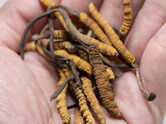01/6The rising scare of H3N2 virus

The H3N2 is one of the seasonal influenza viruses that infect humans, particularly at this time of the year, and we are seeing a slight increase in the number of detected cases. According to Dr. Sanjith Saseedharan, Consultant & Head Critical Care, SL Raheja Hospital, Mahim-A Fortis Associate, this kind of virus unlike COVID-19 is definitely not life threatening. However, it is important to note that any virus can be life-threatening if the immunity reserves of the infected individual are not adequate.
02/6Individuals at risk of H3N2 virus:


“This virus infection can become serious in elderly people with comorbidities like Diabetes, and Chronic Obstructive Pulmonary Diseases, leading to hospitalization and may also need ICU admission. It is also important to remember that there is no definitive treatment for the same and largely the treatment is supportive care,” says Dr. Saseedharan.
03/6Health ministry issues alert for H3N2


In the meantime, the Union Health Ministry on Friday issued a warning to states to be on high alert following the reports of two H3N2 deaths in Haryana and Karnataka. 59 cases of the H3N2 virus were reported in Odisha, and the state's director of public health Niranjan Mishra urged residents to "strictly follow the COVID guidelines to keep H3N2 at bay" because there is "no conclusive therapy available" for the illness.
04/6Guidelines by union health ministry:


According to information released by the union health ministry on Friday, India reported 451 cases of the H3N2 virus between January 2 and March 5. According to a government warning, everyone should wear masks, and anyone with a cold or cough should cover their face with a cloth or handkerchief.
05/6Can H3N2 virus cause a COVID wave?


The increase of infections has raised questions about whether this outbreak would end up becoming another COVID. Nonetheless, hospitalisation has not been a regular occurrence; just 5% of cases have been recorded to have been hospitalised. Therefore, there is no reason to panic if individuals adopt safeguards similar to those taken during COVID days.
06/6The takeaway:


Also Read: H3N2 flu: Warning signs you may be infected; tips to prevent catching the virus

































































































closecomments
SIGN IN WITH
FacebookGoogleEmail